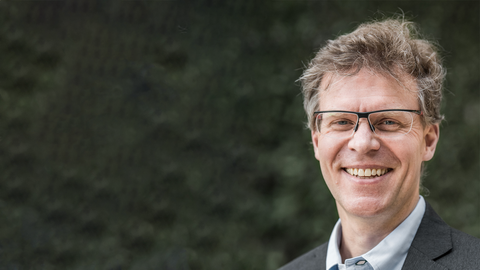Oct 27, 2021
New guest researcher at the CRTD: Dresden Senior Fellow Prof. Matthias Hebrok

Prof. Matthias Hebrok
Prof. Matthias Hebrok joins the Center for Regenerative Therapies Dresden (CRTD) at the TU Dresden as a guest researcher for the winter semester of 2021. The esteemed diabetes specialist is supported by the Dresden Fellowship Program.
Prof. Matthias Hebrok is Hurlbut-Johnson Distinguished Professor in Diabetes Research and served as director of the Diabetes Center at the University of California, San Francisco, from 2010 to 2020. Over the years, his group has made important contributions to our understanding of pancreas development and function, including diabetes and pancreatic cancer. His laboratory has developed protocols to generate functional islet cells, including insulin-producing beta cells from human pluripotent stem cells, an advance that provides unprecedented insights into human beta-cell function as well as avenues for stem cell-based therapies for patients with diabetes.
“I’m happy to be visiting the CRTD for a full semester. I am having a great time meeting with the outstanding scientists here, including graduate students, postdoctoral fellows, and group leaders, and discussing their exciting work in regenerative biology. It’s the diversity of the approaches and model systems employed here that attracted me to the CRTD and the Center for Cellular and Molecular Bioengineering (CMCB) in the first place. I am excited to learn about novel ideas that are immediately relevant to our studies on pancreas biology and disease,” says Prof. Hebrok.
Prof. Hebrok has worked together with scientists from Dresden for many years. He collaborated on multiple projects with research groups at the CRTD, the Medical Faculty, and the Max Planck Institute of Molecular Cell Biology and Genetics (MPI-CBG). His connection to research in Dresden was recognized in 2019 with an honorary professorship at the CMCB at the TU Dresden.
About Prof. Matthias Hebrok
Prof. Matthias Hebrok completed his Diploma degree in Cell Biology from the Albert-Ludwigs University of Freiburg. He conducted his doctorate studies at the Max-Planck Institute for Immunobiology in Freiburg and later moved to the Howard Hughes Medical Institute (HHMI) at Harvard University for his postdoctoral research.
About the Dresden Fellowship Program
The Dresden Fellowship Program aims to attract international scientific talents at both the senior and early-career levels to TU Dresden. It offers funding to conduct joint research and teaching at the TU Dresden for up to six months. The focus of the program is to boost international cooperation and set up long-term international cooperation strategies for institutions and working groups at TU Dresden and its DRESDEN-concept partners.
